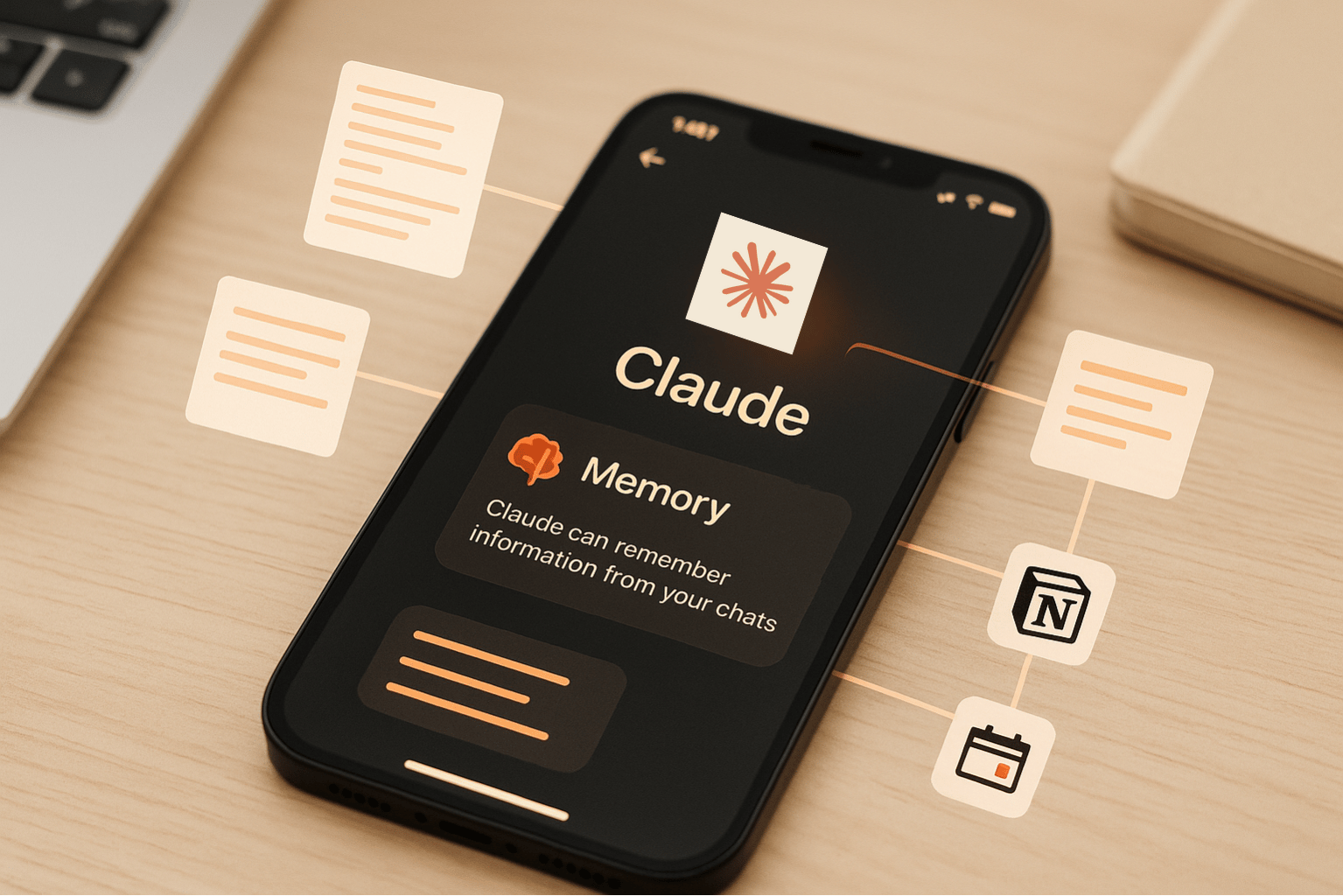
Image Source: ChatGPT-4o
Claude’s iOS App to Add Memory, Artifacts, and Remote MCPs
Key Takeaways:
Anthropic is testing a memory feature for Claude's mobile app, allowing it to recall details across chats.
Artifacts Gallery, previously web-only, may soon launch on iOS for managing Claude-generated documents.
Support for remote MCPs (Model-Connected Plugins) is in development, expanding task automation on mobile.
All features were found via reverse engineering and are not yet officially announced or dated for release.
Claude’s memory feature surfaces in iOS code
Anthropic appears to be preparing a significant upgrade to Claude’s iOS app, introducing several advanced capabilities currently limited to its web version. Chief among them is a memory and recall system, which would allow Claude to retain information across sessions and reference previous chats—a functionality currently missing from all Claude platforms.
This memory feature would place Claude in closer alignment with competitors like ChatGPT, which already supports long-term memory in both web and mobile formats. Though not yet active even on Claude's web app, its appearance in iOS code suggests a cross-platform rollout may be underway.
The memory system is designed to support use cases that require continuity—such as academic research, recurring project management, or complex planning. For users, this could mean Claude remembers preferences, past tasks, or shared context over time.
Artifacts Gallery may come to mobile next
Another addition found in development is support for Artifacts Gallery, a feature that allows users to pin, view, and manage outputs like code, essays, and structured content outside of the chat thread. Already available on the web, this gallery serves as a lightweight document system embedded within Claude.
Bringing Artifacts to mobile could improve portability for professionals and students who generate content on the go, and helps Anthropic keep pace with tools like OpenAI’s file-based chat workflows or Google’s Gemini extensions.
Remote MCPs enable task automation on the go
The third upgrade in testing is support for remote MCPs (Model-Connected Plugins). These enable Claude to interact with external platforms like Notion or task managers, allowing users to initiate actions beyond the app itself.
Until now, MCPs were only functional on the web. Bringing this capability to iOS reflects Anthropic’s broader push toward context-aware, multi-modal assistance that works seamlessly across devices. For mobile users, this unlocks new forms of on-the-go productivity—executing tasks without manual input or switching apps.
No official release date yet
None of the new features have been formally announced by Anthropic. All information surfaced through reverse engineering of Claude’s iOS app, revealing the company’s intent to bring parity between mobile and web versions. A timeline for release has also not been disclosed.
Q&A: Claude iOS Feature Updates
Q: What new features are coming to Claude’s iOS app?
A: Memory support, Artifacts Gallery access, and remote MCP (Model-Connected Plugin) capabilities are in development.
Q: What is Claude’s memory feature?
A: It allows Claude to recall information across chats, helping with long-term tasks and context retention.
Q: What is the Artifacts Gallery?
A: A feature for managing Claude-generated content like code or documents outside of the main chat.
Q: What are remote MCPs?
A: Plugins that let Claude interact with external tools like Notion for automated task execution.
Q: When will these features launch?
A: There is no official release date; the features are still in internal testing.
Looking Ahead
Anthropic’s mobile expansion signals a push to make Claude a more capable, memory-aware assistant for professionals and students alike. By bringing web-only features like memory and MCPs to iOS, Claude may soon offer a more cohesive, cross-platform experience tailored for productivity and continuity.
If these capabilities roll out broadly, they could shift Claude from a reactive chatbot into a more proactive, persistent digital partner—one that remembers, organizes, and acts across time and tools.
Editor’s Note: This article was created by Alicia Shapiro, CMO of AiNews.com, with writing, image, and idea-generation support from ChatGPT, an AI assistant. However, the final perspective and editorial choices are solely Alicia Shapiro’s. Special thanks to ChatGPT for assistance with research and editorial support in crafting this article.


